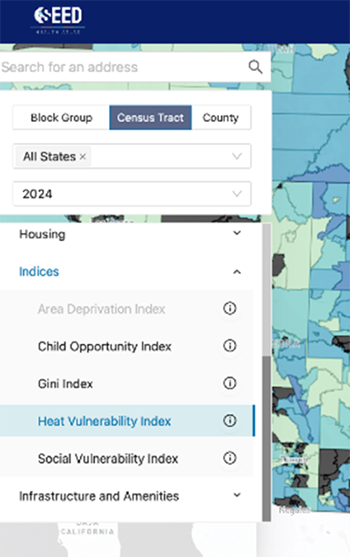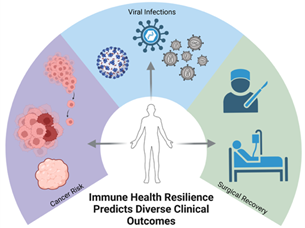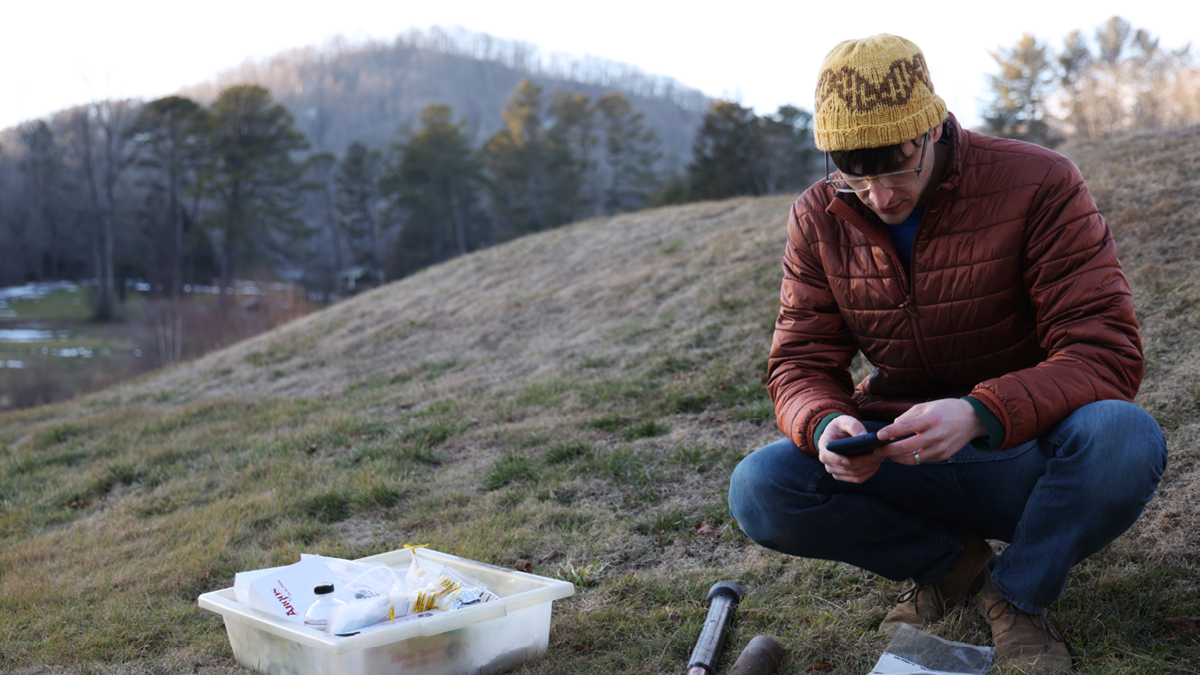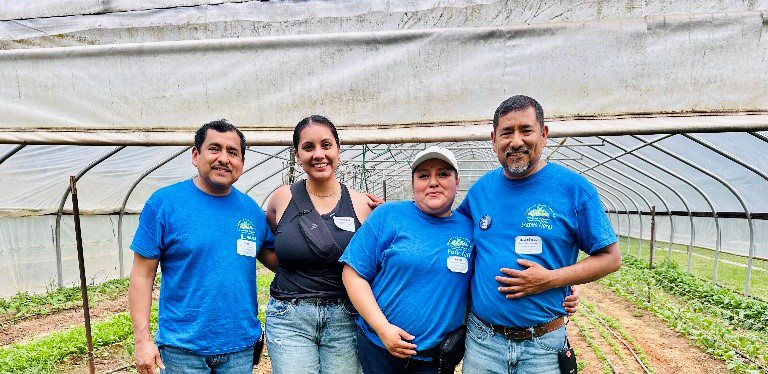Combating the Health Impacts of Climate Change in the Carolinas
The Duke Endowment has provided a $4.5 million award to facilitate research on the health impacts of climate change in the Carolinas and beyond, leading to practical solutions and creating frameworks that emphasize collaboration among researchers, data analysts, and local stakeholders to better understand health risks linked to climate change.
From this foundation, resources and strategies will be developed to support communities, improve public health outcomes, and promote long-term resilience. The initiative will focus on translating research into real-world impact, ensuring that solutions are not only evidence-based but also adaptable and responsive to evolving needs.
Acceleration of existing research projects
Grant funding will accelerate existing Duke projects, including studies on climate-health intersections such as flooding’s effect on fungal growth and respiratory health, climate-related immune vulnerabilities, heat stress as a factor in pediatric kidney disease, and expansion of the SEED Health Atlas to integrate climate data with social and health indicators.
Symposiums and pilot funding for NEW research ideas
Starting in early 2026, CHeRI will host annual “Big Idea” symposiums to bring together faculty and trainees across Duke and spark new research. Selected collaborative proposals will receive pilot funding. By integrating research, engagement, and policy development, the initiative will build a robust foundation for public health strategies that address climate-related health concerns for years to come. Visit Climate and Health “Big Idea” symposium or more information.
Funded Project Overviews
1. SEED Health Atlas for Climate and Health

The SEED for Climate and Health project aims to expand the existing SEED Health Atlas by integrating curated climate data with social, environmental, and health data to better understand and address the health impacts of climate change. The project will incorporate data on heat, flooding, air quality, and other environmental exposures, converting them into formats that can be linked with health data at neighborhood and individual levels. The data will be publicly available to researchers and community members alike through automated pathways to facilitate their use for research, and novel visualizations that allow individuals to see how climate factors impact health.
Community engagement is integrated within the project through focus groups and educational sessions to ensure the platform meets the needs of non-academic users, including local community members, advocacy groups, and health departments. SEED enables users to download and link data for research and advocacy, democratizing access for community empowerment.
By linking SEED data with Duke’s electronic health records and collaborating with AI/ML experts, the project will enable advanced research into causal relationships and predictive modeling of climate-related health risks. Ultimately, SEED will serve as a powerful, accessible tool for researchers, policymakers, and communities to drive data-informed action on climate and health.
For more information contact: Nrupen Bhavsar, PhD at nrupen.bhavsar@duke.edu
2. Duke/North Carolina Community Coalition for Climate Change and Health
This initiative aims to strengthen the resilience of health systems and communities in North Carolina in response to climate-related challenges such as extreme heat, storms, and drought. Through the establishment of the Duke/North Carolina Community Coalition for Climate Change and Health (Duke/NC 4cHealth), the project fosters collaboration among community members, healthcare institutions, and policy leaders to co-design solutions that address climate-driven health disparities.
In its initial phase, the project focuses on identifying key community partners and facilitating a multidirectional exchange of knowledge. Activities include conducting needs assessments, mapping available resources, and analyzing gaps in disaster response using a social determinants of health framework. Outcomes include a strategic engagement plan, a virtual resource map, and a qualitative summary of community priorities and strengths.
The project will culminate in the formation of a statewide coalition dedicated to advancing climate resilience through practice, policy, education, and research. This foundation will support future implementation and evaluation efforts across North Carolina and South Carolina, positioning Duke as a leader in climate and health innovation.
Contact: Erin Hanlin, MD, MPH at erin.hanlin@duke.edu) or Grayson Chappell, MA, LPA at grayson.chappell@duke.edu
3. Duke Immunology and Climate Change Exploration (DICE)
The Duke Immunology and Climate Exploration (DICE) initiative investigates how climate change influences immune health, aiming to identify early disease risk indicators and develop community-centered interventions. Led by a multidisciplinary team of experts in immunology, environmental health, computational biology, and community-based research, DICE explores how ecological stressors - such as extreme heat and air pollution - impact immune resilience and contribute to chronic and infectious diseases.

Using North Carolina as a natural laboratory, DICE leverages large-scale datasets from regional studies including PEGS, Project HOPE 1000, and the NC Firefighter Cancer Cohort. These resources provide rich data on environmental exposures, health outcomes, and social determinants of health. Through advanced immunological profiling and computational analysis, DICE aims to uncover climate-responsive immune signatures linked to conditions such as asthma, HIV, diabetes, and inflammatory bowel disease.
DICE deliverables include the identification of biomarkers for climate-induced immune dysregulation, the development of predictive models for health outcomes, and strategies for individual and community-level interventions. DICE also fosters public engagement through symposia and collaborative research, positioning Duke as a leader in climate and health innovation. This foundational work will inform future global studies and guide equitable, science-based responses to climate-related health challenges.
For more information contact: R. Keith Reeves, PhD at keith.reeves@duke.edu.
4. CLIF – Climate & Fungi Research
This project investigates the health risks associated with fungal growth following severe flooding events, which are increasing in intensity due to climate change. This project is using Hurricane Helene’s historic impact on Black Mountain, NC as a case study. Flooding creates damp environments that promote the growth of potentially disease-causing fungi and the release of harmful airborne mycotoxins and volatile organic compounds (VOCs), impacting respiratory health and increasing the risk of opportunistic infections.
Researchers collected over 100 environmental samples from affected facilities, identifying a wide diversity of fungi, including species known to produce mycotoxins and cause human disease. The project aims to characterize fungal species, assess their susceptibility to antifungal treatments, and identify VOCs and mycotoxins linked to adverse health outcomes such as asthma and sick building syndrome.
Key deliverables include the creation of the Black Mountain Fungal BioBank, a repository of unique fungal specimens for future research, identification of mycotoxins and VOCs generated by the fungal specimens, and a Community Resilience Toolkit to inform public health preparedness and response. The team will also analyze local health data to compare infection rates before and after the flood.
This work fills a critical gap in understanding fungal health risks in temperate, mountainous regions and will inform future interventions, building resilience in communities facing climate-related disasters.
For more information contact: Asiya Gusa, PhD at asiya.gusa@duke.edu or Erica Washington, PhD at erica.washington1@duke.edu

5. Environmental Exposures and Kidney Health (EEKH)
The Environmental Exposures and Kidney Health (EEKH) working group is a multidisciplinary initiative dedicated to addressing the growing burden of climate-sensitive kidney diseases, particularly chronic kidney disease of uncertain etiology (CKDu). CKDu has emerged as a major global health concern, disproportionately affecting young, otherwise healthy individuals in low-income and climate-vulnerable communities.
EEKH brings together researchers from Duke University and partner institutions to investigate the mechanisms linking environmental stressors—especially heat exposure—to kidney injury. Current efforts focus on both rural North Carolina and international hotspots such as Sri Lanka. Using advanced biomarker profiling and wearable sensor technologies, the team examines heat-related kidney stress among populations with recurrent or prolonged heat exposure, including outdoor workers, athletes, and firefighters.
Key outcomes include the identification of early biomarkers of heat-induced kidney injury and evidence to inform policy reforms that better define safe heat exposure thresholds for vulnerable populations. Ultimately, the research will lay the foundation for innovative preventive strategies—such as cooling interventions and sustainable water access—to safeguard kidney health amid rising global temperatures. By bridging discovery science with community and policy stakeholder engagement, EEKH positions Duke as a leader in advancing research at the intersection of climate change and human health.
For more information contact: Nishad Jayasundara, PhD at nj58@duke.edu or Mercedes Bravo, PhD at mercedes.bravo@duke.edu.
6. CUIDAR: Cultivating Unified Interventions for the Development of Safe Agricultural Responses to Heat
CUIDAR is a collaborative research initiative focused on reducing heat-related health risks among farmworkers—a population disproportionately affected by climate change. Led by a Duke PhD candidate and in partnership with local farmworker organizations, the project aims to co-design culturally relevant, evidence-based workplace interventions that address extreme heat exposure, housing conditions, and barriers to healthcare.
The initiative engages both farmworkers and growers through advisory boards to develop a practical intervention toolkit tailored to real-world agricultural settings. This toolkit will include strategies such as structured breaks, access to water and shade, and targeted training programs. The project emphasizes community-informed research and includes subgroup analysis of migrant farmworkers facing additional challenges due to visa status and immigration concerns.
Deliverables include a co-designed intervention toolkit and a structured implementation plan for future pilot testing to evaluate effectiveness. Following the piloting and revision of the implementation, long-term goals include national dissemination of the toolkit and improved workplace safety across the agricultural sector. By promoting healthier working conditions, CUIDAR supports both farmworker well-being and the resilience of the food supply chain.
This project also serves as a model for training future public health leaders and advancing Duke’s commitment to climate and health equity.
For more information contact: Elizabeth Rojo at cuidarstudy@duke.edu
